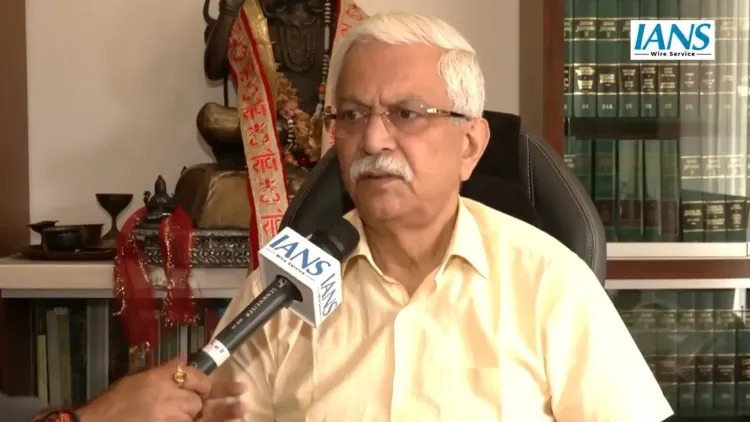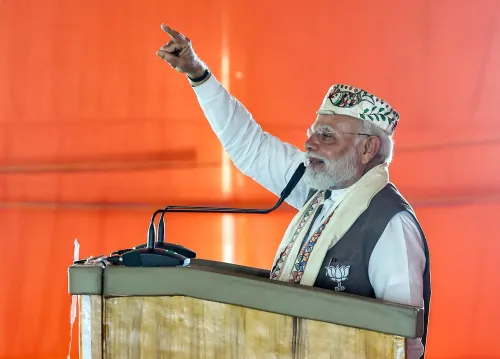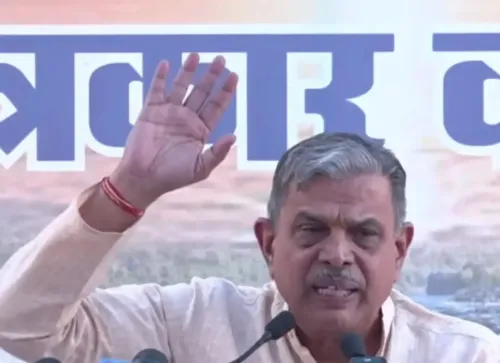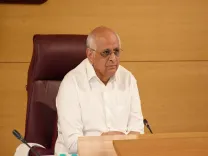Governor's Actions in Tamil Nadu Case Highlight Malicious Intent, Supreme Court Ruling a Triumph for the Constitution: Advocate Rakesh Dwivedi

Synopsis
Key Takeaways
- The Supreme Court ruled ten withheld Tamil Nadu bills are now law.
- The Governor's conduct violated Article 200 of the Constitution.
- Rakesh Dwivedi emphasized the Governor's malintent in delaying assent.
- The court clarified that re-passed bills must receive Governor assent.
- Obstructing legislative actions contradicts constitutional duties.
New Delhi, April 12 (NationPress) The impasse between the Tamil Nadu administration and Governor R.N. Ravi regarding the delay in approving bills has reached a resolution with the Supreme Court's intervention. In a pivotal ruling, the apex court determined that the ten bills that the Governor had withheld since 2020 are now considered law automatically.
The court also characterized the Governor's actions as a breach of the Constitution, particularly under Article 200.
Senior Advocate Rakesh Dwivedi, who represented the Tamil Nadu government, shared his perspectives with IANS on the case's developments and the broader implications of the Supreme Court's ruling.
He emphasized that the judgment was influenced by the distinctive context in Tamil Nadu. "Ten bills were enacted by the state legislature and submitted to the Governor for approval. Nevertheless, he delayed action for over a year," Dwivedi elaborated.
During this time, a parallel situation emerged in Punjab, prompting the Supreme Court to clarify the interpretation of Article 200.
Dwivedi explained: "The court determined that upon receiving a bill, if a Governor opts not to assent, they must return it to the legislature with a message for reconsideration. Should the legislature re-approve the bill, the Governor is obligated to grant assent, eliminating discretion at that point."
He noted that the Tamil Nadu case was concurrently pending before the Supreme Court. During the proceedings, the Attorney General proposed resolving the matter through discussions with the Governor. However, the Governor neither approved the bills nor forwarded them to the President.
Instead, he returned the bills with the statement: "I do not grant my assent."
In response, the Tamil Nadu Assembly re-passed the bills and resubmitted them to the Governor, who subsequently forwarded them to the President for review. Dwivedi remarked, "This series of actions clearly indicated the Governor's ill intent."
"Retaining the files for a year, disregarding the Supreme Court’s decision in the Punjab case, and obstructing all ten bills without justification illustrate malicious intent," Dwivedi stated.
"Once the bills were re-passed, the Governor was required to provide assent per Article 200. Sending them to the President was unconstitutional," he added.
He further asserted: "A Governor cannot assert, 'I will halt it again' or 'I will resend it to the President.' The Constitution stipulates that upon re-passage, the Governor has no further discretion. The language in Article 200 is explicit—'assent shall not be withheld.' Thus, once re-passed, a bill cannot be denied."
Dwivedi pointed out that the Supreme Court recognized the Governor's actions as violations of Article 200 and overturned them.
"When the initial action is declared invalid, any subsequent actions—such as sending the bills to the President—also lose their validity. If the foundation is removed, the structure collapses," he noted.
It is crucial to understand that the ten bills in question were passed by the Tamil Nadu Legislative Assembly—some during the prior AIADMK government and others under the current DMK government. However, Governor R.N. Ravi delayed his assent for an extended period without a clear decision. After the Assembly re-passed the bills, he once again declined assent and forwarded them to the President.
The Tamil Nadu government contested this action in the Supreme Court, contending that it was arbitrary and unconstitutional.
The Court clarified in its ruling that the Governor’s behavior was inconsistent with Article 200 of the Constitution and that obstructing or indefinitely delaying bills approved by the legislature is not in line with the constitutional responsibilities of a Governor.









